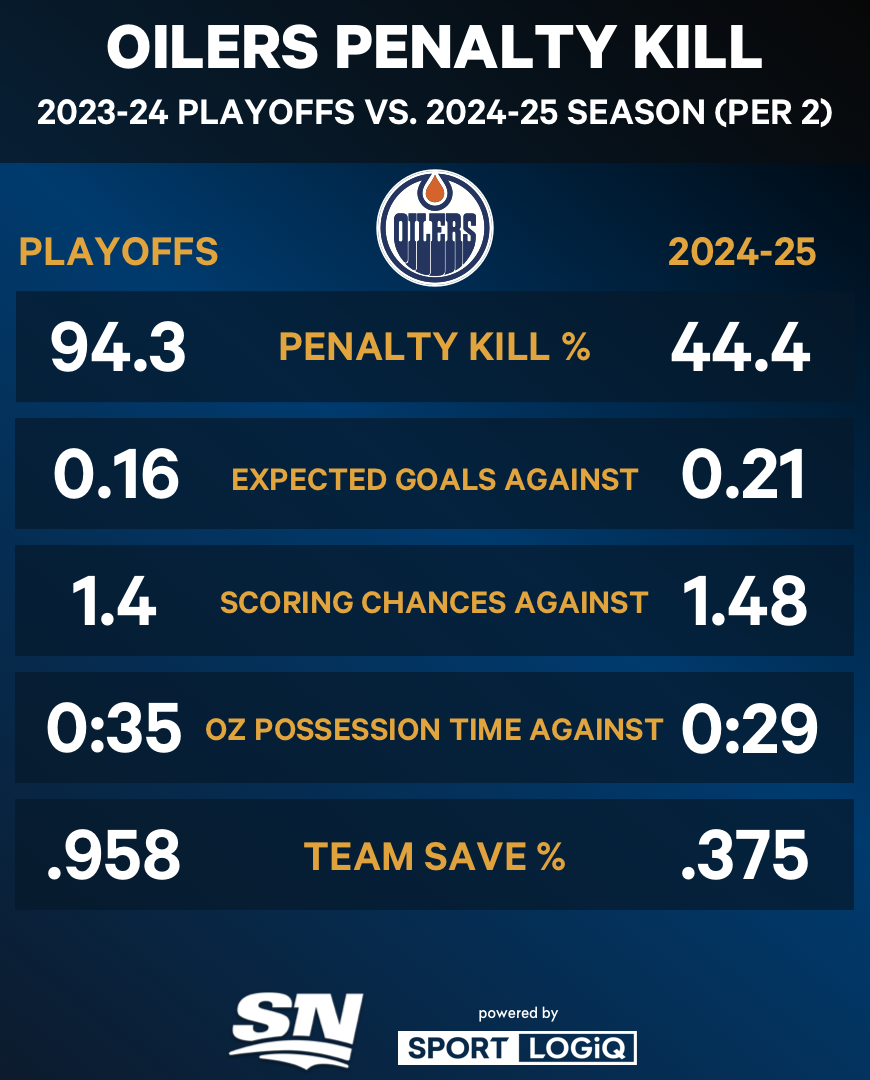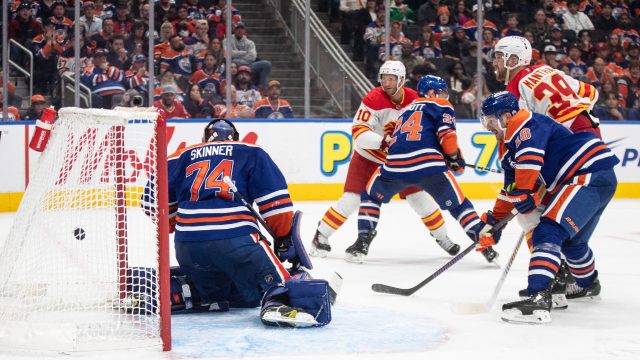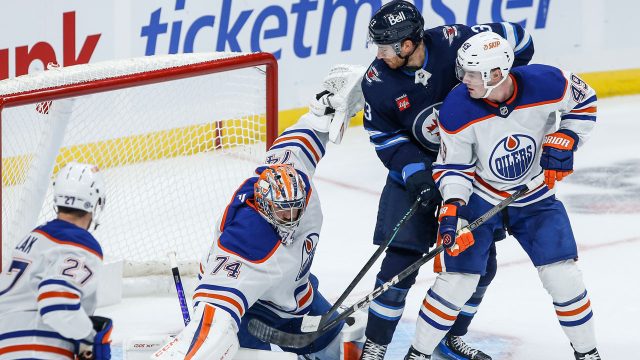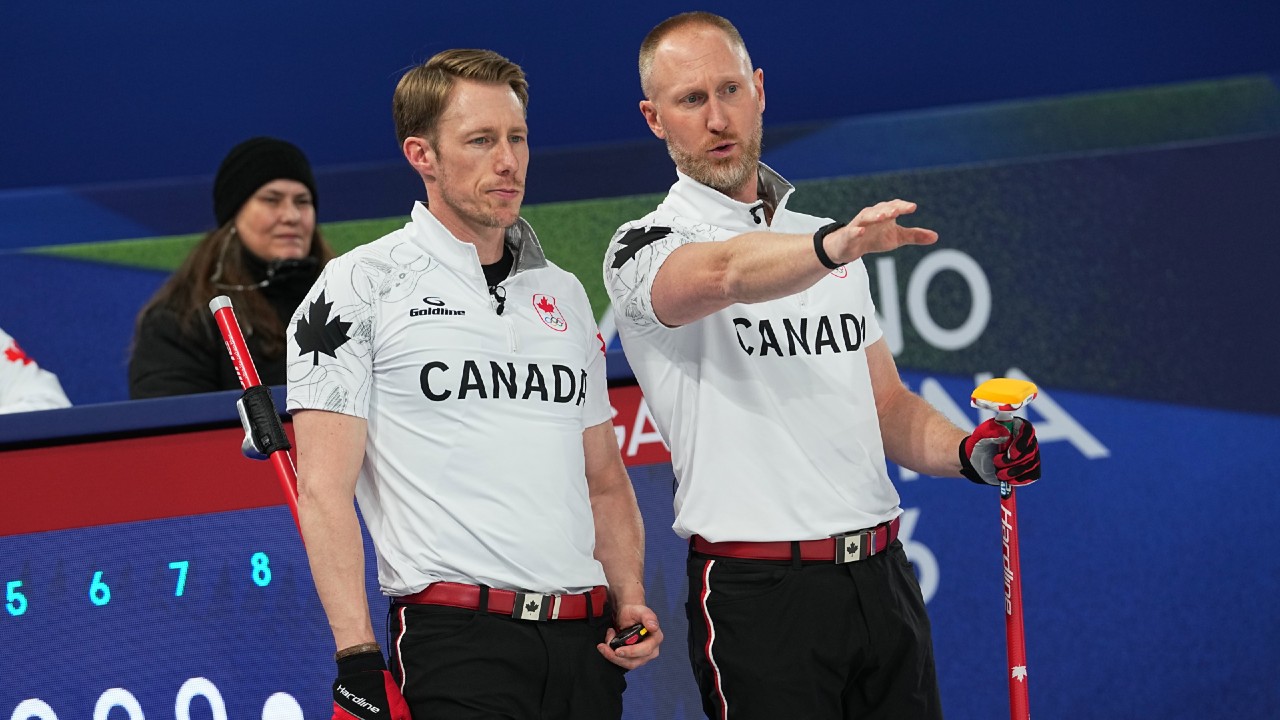
Another year, another slow start by the Edmonton Oilers.
The Oilers’ 4-1 loss to the Calgary Flames on Sunday dropped them to 0-3-0, dredging up memories of their awful first month last season. Edmonton, which has been outscored 15-3 this season, has lost its first three games in regulation for the first time since 2015 — Connor McDavid’s rookie year.
“I’m sure there’s lots of ways to explain it,” said McDavid, who has two assists so far. “Ultimately, it hasn’t been good enough.”
So what are some of those ways? For starters, the Oilers’ top line of McDavid, Zach Hyman and Ryan Nugent-Hopkins has struggled out of the gate. That trio was arguably the most dangerous in the NHL last season, outscoring opponents 35-20 and generating 69.3 per cent of the expected goals at 5-on-5. But McDavid, Hyman and Nugent-Hopkins have not clicked yet, failing to score and generating 42.7 per cent of the expected goals in 22:40 of 5-on-5 ice time.
As a result, Oilers coach Kris Knoblauch has shaken up his forward lines in search of an offensive spark. On Sunday, Knoblauch swapped Nugent-Hopkins and Jeff Skinner on the left side of the top six. Although Skinner scored his first goal for the Oilers while on the ice with McDavid and Hyman, they were dinged for two goals against later in the loss to the Flames. (The Oilers have been outscored 5-1 with McDavid on the ice at 5-on-5.)
Knoblauch is also still trying to figure out the Oilers’ second and third defensive pairs underneath Mattias Ekholm and Evan Bouchard. Five different combinations have played at least 10 minutes at 5-on-5, led by Darnell Nurse and Travis Dermott (33:56). Ty Emberson, whom the Oilers acquired from the San Jose Sharks in August for Cody Ceci, has gone from the second pair with Nurse on opening night to a healthy scratch in just three games.
The Oilers’ lack of cohesion up front and on the back end might explain why they appear a step slower. Edmonton’s high-powered transition attack has sputtered to start the season, averaging 5.78 rush scoring chances per 60 minutes at 5-on-5. That is down from 7.62 per 60 in 2023-24. Through three games, the Oilers have been outscored 4-0 off the rush at 5-on-5 and 5-0 in all situations.
The most glaring deficiency is the penalty kill, which performed at historic levels during the Oilers’ run to Game 7 of the Stanley Cup Final. It operated at 94.3 per cent (66-for-70) over 25 playoff games and at one point killed 34 consecutive penalties — one of the longest streaks in post-season history. But in losses to the Winnipeg Jets and Chicago Blackhawks, the Oilers went 1-for-6 on the penalty kill. (They stopped all three of the Flames’ power-play opportunities Sunday, which raised their success rate to 44.4 per cent.)
It should be noted that the Oilers lost several of their top penalty killers during the off-season, including Ceci (2:36 shorthanded ice time per game), Vincent Desharnais (2:02 per game) and Ryan McLeod (1:14 per game).
“Everyone was locked in and in sync in the playoffs,” Knoblauch told reporters. “Right now, obviously, we’re not in sync.”
The good news is that many of the underlying numbers line up with those from the playoffs, suggesting there are no deep-rooted issues with the penalty kill. Goaltending has been the primary culprit. Stuart Skinner and Calvin Pickard did not make a single save when shorthanded in the first two games, allowing goals on all five shots they faced.
Skinner and Pickard have a combined .855 save percentage at 5-on-5 — third worst in the league. Eight of the nine goals scored against them in that situation have come from the slot. Their teammates have had a difficult time keeping opponents out of that area of the ice. Half of the 5-on-5 shot attempts allowed by the Oilers (61 of 121) have come in the slot.
A 2-9-1 start last season did not stop the Oilers from nearly reaching their goal, so there is no reason for panic yet. There is, however, no denying that the Oilers should be better than this.
“When you had a season like we did last year, then coming back and then expectations being really high, I don’t think there’s enough desperation,” Knoblauch told reporters. “This game is about desperation. Right now, we’re lacking that.”
All stats via Sportlogiq







